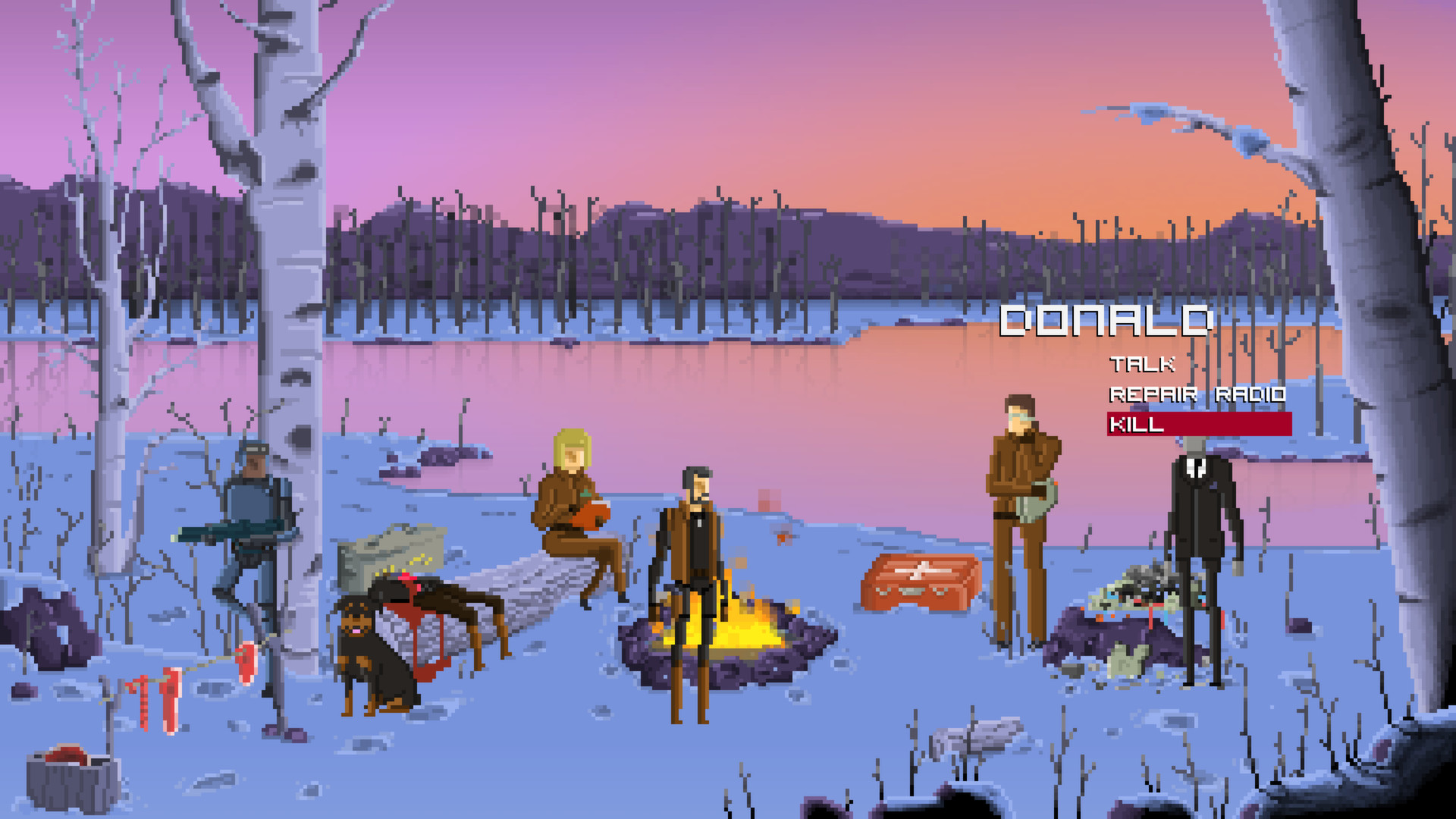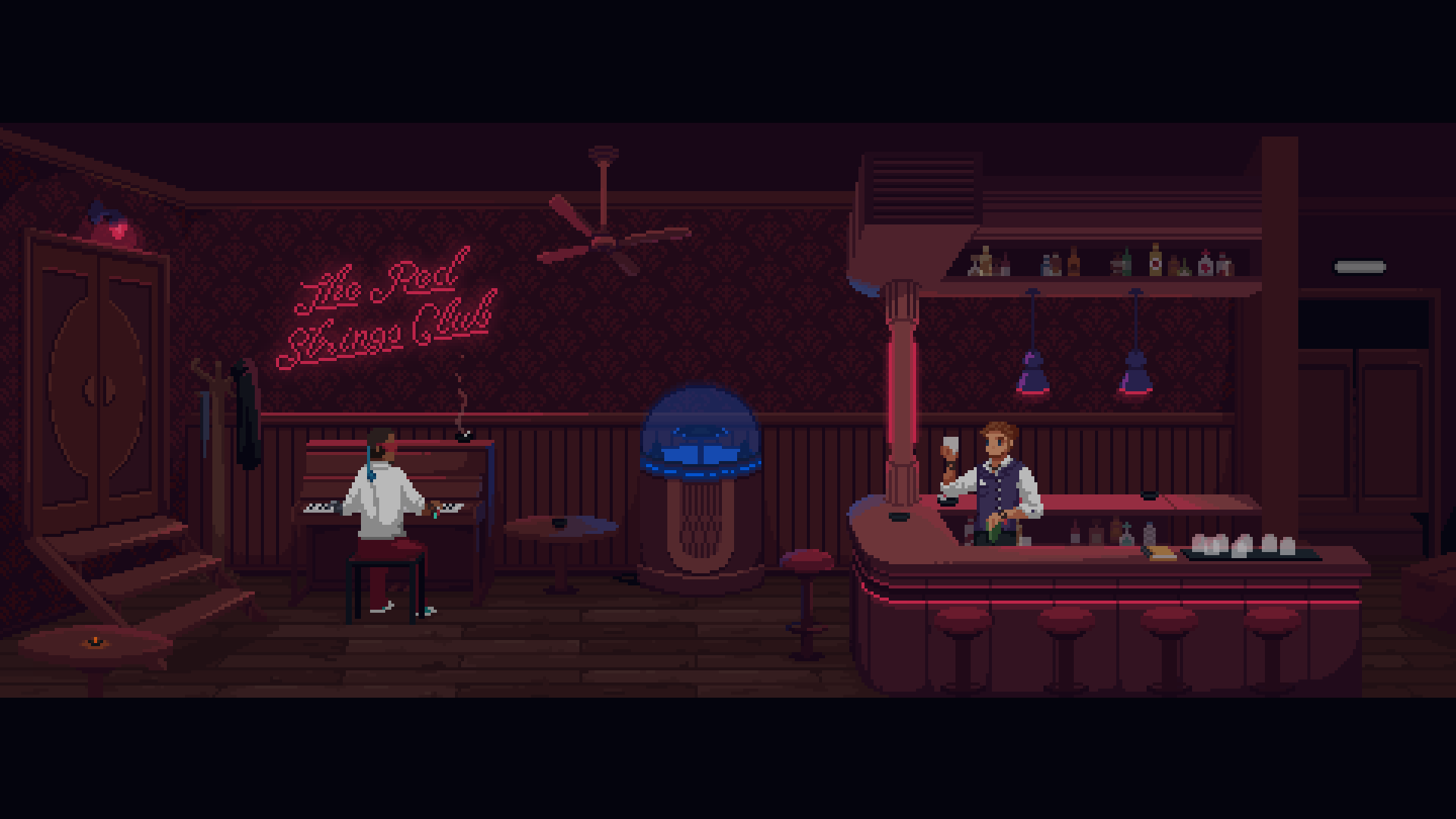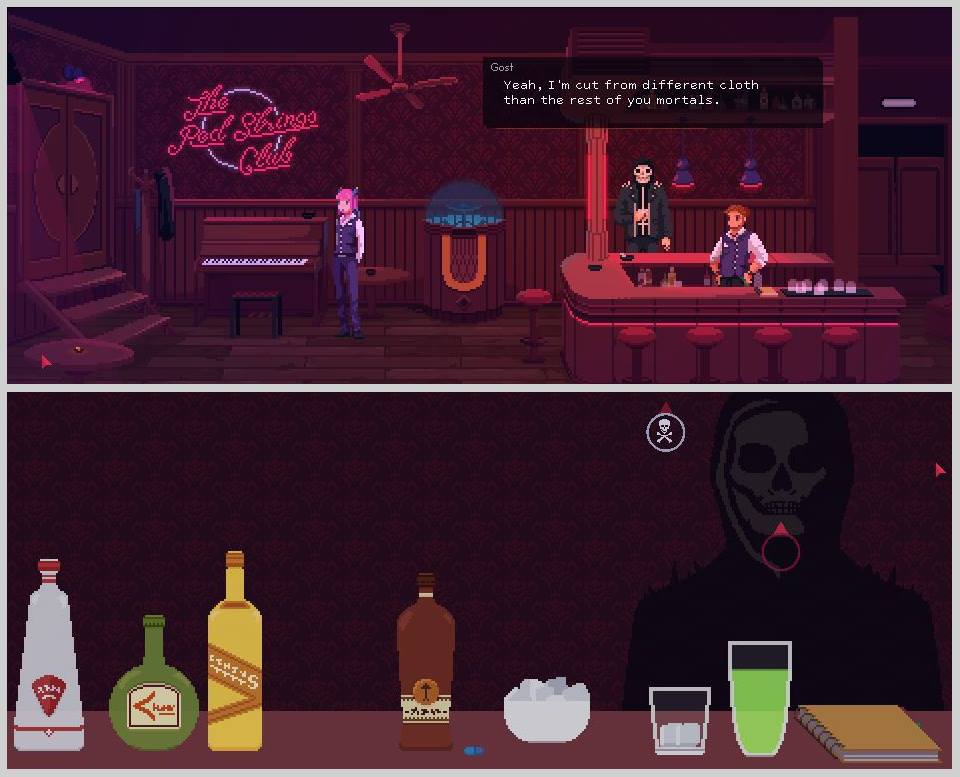The Red Strings Club came out a couple of weeks ago. After playing it (and replaying it) we got in touch with Jordi de Paco from Deconstructeam, who was generous enough to give us a bit of his time to answer a few questions.
Here we talk about Deconstructeam’s beginnings, Gods Will Be Watching, how Devolver got in the picture, how The Red Strings Club came to be and what the Spain’s situation in the video game industry.
Birth of Deconstructeam
Cliqist: Tell us a bit about Deconstructeam, how you guys got together and decided you were making video games
Jordi de Paco: I got into game development because of a life’s crisis. I was a web developer and my job wasn’t really… stimulating. So I started asking myself “is this how I want to die? If I don’t do anything about it this will be it.” — That’s when I decided to make games, my dream job since I was a kid. However, I attempted making games in the past and always failed because the team fell apart, not able to go through the ordeal of actually finishing a game.
This time I wanted it to be different, so I started making games alone so I wouldn’t be able to blame anyone else for failure. I did so, making small browser games… with really lame art and no audio since those weren’t among my set of skills. That’s how Deconstructeam came to be, out of pity some people started to help me with the visuals and music, and after many projects (up to 26 right now, considering all the game jams we joined), the current team got consolidated.
At some point during this adventure, when we still didn’t consider had enough quality to make a living out of game development, Devolver Digital contacted us and changed our lives, backing us to release Gods Will Be Watching.

Gods Will Be Watching
Gods Will Be Watching started as a Ludum Dare game. How did you get the idea of expanding it?
Gods Will Be Watching was more like a game jam for ourselves. A small step in our odyssey of learning how to mae games. However, unexpectedly for us, it became the runner-up in that Ludum Dare and was very acclaimed by critics and public. Seeing that we found an interesting key we decided to analyze why it had work and expand it to turn it into our first commercial project.
After the Indiegogo campaign where you succesfully funded the full version of Gods Will Be Watching Devolver Digital came and published the game. How did that make you feel and how was that first contact?
The thing with Devolver was crazy. Simply one day we get an email from Devolver that said “Hi. We dig the stuff you make and we want work with you.” We arranged to have a chat on Skype and we hit it off. So they decided to fund and publish Gods Will Be Watching. Devolver has changed our lives. We wouldn’t be here without them. We’re eternally thankful to them, they’re wonderful people.
Back in the day a lot of people criticized how Gods Will Be Watching was so harsh, especially because of how chance was a factor to consider. Were you expecting that?
We knew that the game was very difficult, and frustrating at times… but that was exactly something that a lot of people praised in the original prototype. We didn’t expect that it would cause so much wrath in the full version. On the first week we received numerous messages with insults and even death threats. It was very harsh. Worried by that reaction we decided to launch the ‘Mercy Update’, which added easier modes and even the possibility of removing chance from the puzzles.

The Red Strings Club
How did The Red Strings Club come to be?
By accident. After Gods Will Be Watching we spent two years working on new ideas that didn’t really go any further. After cancelling two projects we were in a tight spot… We were running out of money and we needed to launch something as soon as possible. So we started joking about merging several prototypes that had been well received and selling them as it was ‘What if we merge the pottery game with the cocktail one and the one about making phone calls?’ We began to play around with how we could combine that madness, and without noticing it we got to a concept that seemed really interesting. Decided to capture that on a design and show the idea to Devolver Digital. They loved it. That’s how The Red Strings Club began.
From a cyberpunk point of view what influenced the game’s aesthetic? And all the psychological background?
In terms of world and aesthetic: Psycho Pass, Burning Chrome, Deus Ex, Death Parade and Midnight Diner.
Philosophically speaking: Zen and the Art of Motorcycle Maintenance, Mr Robot, Viaje al Instinto (Eduardo Punset) [note: Eduardo Punset is a scientific populariser who used to have a TV show in Spain about a decade ago, he’s also written many books on the theme] and Play Anything (Ian Bogost).
Where did game mechanics like implant pottery, emotion cocktails and Brandeis’ hacking being social engineering come from?
As I mentioned before, since it all came from a happy accident (they all were in earlier prototypes) it was more of a matter of how to put those mechanics at the narrative’s service. Analyzing them, we noticed they all had a common thing: Manipulation. They all dealt with altering other people’s lives, emotions or actions. So we used them as the driving force of what we wanted to tell in this game.
Of all the characters in the game, who’s your favourite?
Ah, I’d rather not say. They all have their function and the game would be incomplete without any of them.
Who had the idea of including GosT in the game? And how do you feel about having captured his personality. Having seen him life he really changes the ambiance of any place just by being there. It’s safe to assume he can also disappear without a trace.
We once saw GosT live and we really liked him, both his music and aesthetic. When I was figuring out how the character who “supplies” Donovan, the bartender, with new mechanics I thought of GosT. And I thought he was an amazing character to give that supernatural touch to that mysterious smuggler that appears in The Red Strings Club.

Games Industry in Spain
What’s your opinion of the videogame scene in Spain? Especially after that fiasco where the government tried to cut funding to it.
There are more and more teams making games in Spain. That means there’s a lot of talent, and also a lot of beginners. My perception is that a small percentage of projects generate revenue nowadays in our country. However I don’t think it’s a matter of visibility or that being Spanish is a handicap, but that a lot of the games produced here don’t have enough quality.
This is going to change and it’s getting better year by year. Because all those moderately succesful games, and even the failures, are making the industry mature. And with all the energy and illusion I see at national events I’m certain that in some years those national projects will considerably raise the bar.
You only have to look at this year, which has promising projects like The Game Kitchen’s Blasphemous, FourAttic’s Crossing Souls or Team Gotham’s Solo to name a few.
The Future
What’s in store for Deconstructeam?
We’ll keep failing. Participating in many jams and experimenting until we find the new key.
To wrap things up, having finished The Red Strings Club left us wanting more. Especially because of Donovan’s mystery and mystique. Will we see him again in the future?
You never know. Of course, for the time being we prefer to work on new things 😉
Our most sincere thanks to Jordi for giving us his time to reply to these questions. Whatever the future holds in store for Deconstructeam it’s going to be interesting for sure.



